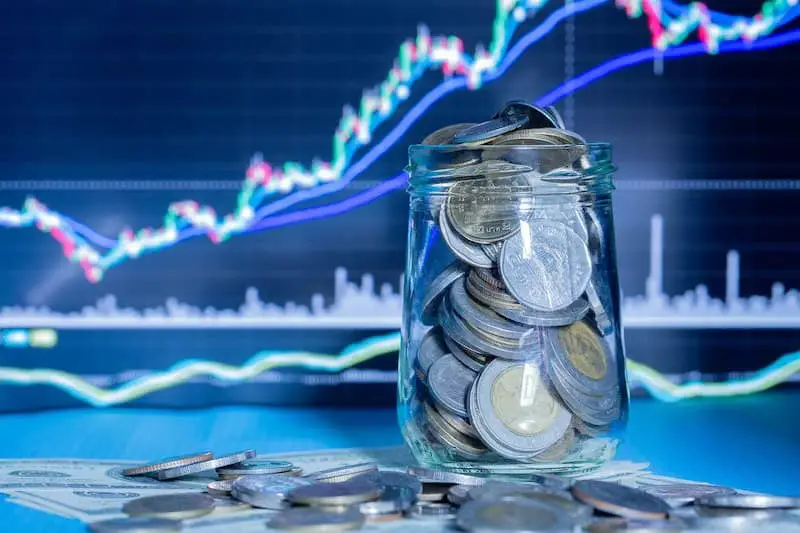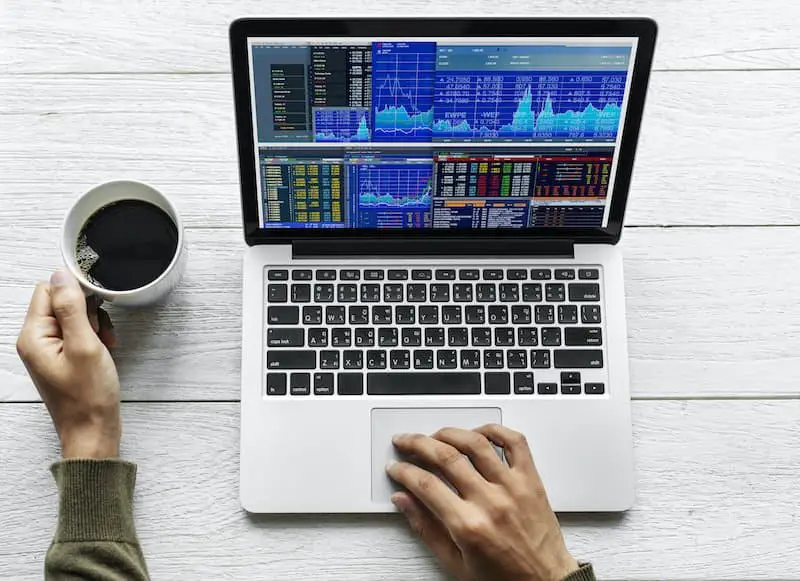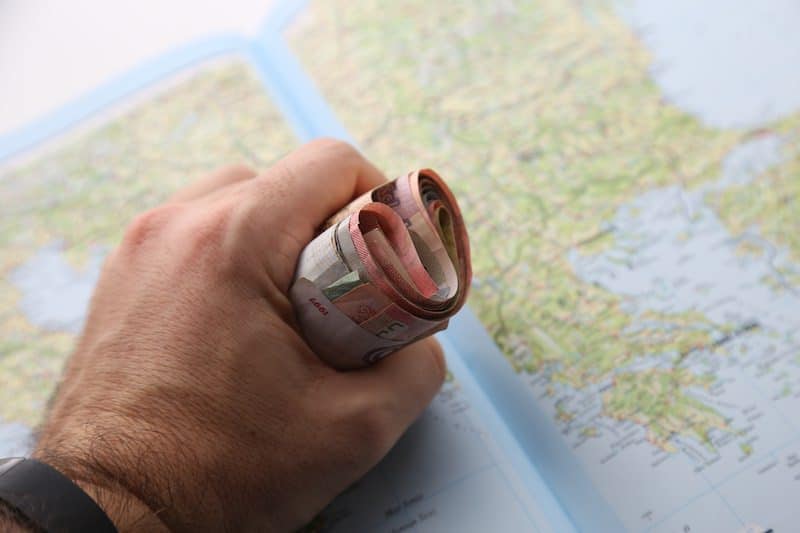Investing in stock is an excellent path towards saving and building wealth. The hardest part is learning the basics and making the first stock market investments. What comes after?
U.S. shares make for 40% of the world stock market. This leaves 60% for foreign stocks you can choose from to diversify your portfolio.
You know the saying; don’t put all your eggs in one basket? If the basket falls, all your eggs will break. This saying describes best why you should consider international stocks.
Diversifying your portfolio is not a suggestion but a must if you want security and stability. With the international market becoming more available and the global economy booming, investing overseas is easier than ever.
The internet nowadays allows us to get in-depth information about foreign markets, the economy, and the political climate and decide what market is best for our investments.
Depending on what kind of investor you are, there are different approaches to how much you should invest in international stocks.
For conservative investors who prefer low to moderate risk, 10% to 20% of their portfolio should be in international stocks. The recommendation for aggressive investors who prefer higher risk is up to 50%.
Why Invest In International Stocks

According to Vanguard, Americans are predominantly skeptical about foreign investments. They associate unfamiliar names with high risk – an understandable fear of the unknown.
Foreign stock is a great way to diversify your portfolio and lower volatility. Having international exposure lets you benefit from the global economy. For example, if stocks are down in the U.S., they can be up in Europe and vice versa.
You must follow two rules: don’t make the majority of your shares foreign and don’t concentrate on one industry.
By avoiding foreign stock, you limit yourself only to 40% of the world’s stock market. This leads to missing opportunities for revenue and diversity.
What Is The Gain From International Stocks

Not all international stocks give you the high-risk high-return scenario.
Investing in developed economies like Canada, Australia, and Japan is an excellent international investment way that comes with low risk and small gain.
On the other hand, emerging economies like India, China, and Russia are not stable and come with high-risk, high-return. They currently represent 15-20% of the world market. As tempting as that gain sounds, don’t get all your international stocks from emerging economies.
If you’re more of an aggressive investor, exposure to the global economy can bring you significant revenue.
You don’t have to be a large investor to invest in international stock – foreign index funds or mutual funds offer global exposure to small investors.
The Risks Associated With International Stocks

While it’s a great way to diversify your portfolio, it’s crucial to consider the risks a foreign investment carries.
Currency Fluctation
One of the primary risks in international investments is currency exchange. You can take some precautious measures like making international investments that are hedged in U.S. dollars.
Inadequate Information
Due to physical distance, you can’t be sure that the information you receive represents the real situation. You might not be able to interpret an event right, thus miss an opportunity and suffer loss.
Geopolitical Risk
The political climate undoubtedly influences the international stock market. If you’re keen on low to moderate risk investments, look for stocks from countries with a developed economy and stable political scene.
International Regulations
The international stock market has different regulations and is not as controlled as the U.S. market. This makes frauds and manipulations everyday events.
How To Invest In International Stocks

There are a couple investment ways to choose from when considering international stocks.
American Depository Receipts (ADR)
Foreign companies use ADRs to establish a presence in the U.S. market or raise capital. Each ADR a foreign company issues represents one or a couple of underlying shares.
This is an excellent way for investors to hold foreign shares since they can get listed, traded, and settled like domestic shares.
Global Depository Receipts (GDR)
This is another type of depository receipts. A depository bank issues shares from international companies in international markets, usually in Europe, and makes them available to investors in or outside the U.S.
GDRs are denominated in U.S. dollars, Euros, or British pounds and can also be listed, traded, and settled like domestic shares. You can obtain GDRs on the London and Luxembourg Stock Exchange and markets in Singapore, Frankfurt, and Dubai.
GDRs get placed with institutional investors in private offerings before general selling.
Global Mutual Funds
Global mutual funds can be region or country-specific. They’re the right choice for international investors that can’t be bothered much.
Internationally focused mutual funds can be actively managed funds or passive index funds and suitable for both aggressive and conservative investors.
Beware, they come with high fees.
Foreign Direct Investing
This is basically buying foreign stock by yourself. You can do it two ways; by opening an account with a local broker from the chosen country or opening a global account with a broker in the U.S. Choosing a local broker can be risky since the broker might not be registered with a regulator and commit fraud.
Direct investing is not for the average small investor since it comes with additional costs, tax implications, market research, need for technical support, etc.
Exchange-Traded Funds (ETF)
Exchange-traded funds are the easiest way to add international stock to your portfolio. They can be region or country-specific and cover a variety of investment categories.
ETFs are safe and reliable and relieve you from the hassle of picking individual stocks by yourself. When purchasing an ETF, pay attention to the fees, liquidity, and tax regulations.
The 10 Most Popular International Stocks

As of September 2020, the most popular foreign companies trading in the U.S. are:
- Alibaba Group – a Chinese company that offers online commerce around the world with a trading value of $2.16 billion.
- Nio – a Chinese car manufacturer, specialized in electric vehicles with a trading value of $1.26 billion.
- JD – Alibaba’s direct competitor is also a Chinese based online commerce company whose trading value is $563.90 million.
- Taiwan Semiconductor Manufacturing Company – a semiconductor manufacturer based in Taiwan with a $570.95 million trading value.
- Pinduoduo – Third Chinese e-commerce company on the list with a trading value of $473.41 million.
- Vale SA – a Brazil-based producer of iron ore, iron pellets, and nickel has a $379.17 million market value.
- AstraZeneca – a British-Swedish biopharmaceutical company developing vaccines has a trading value of $267.79 million.
- Gold Fields Ltd. – South African company for mining gold and holding gold reserves with a $242.02 million trading value.
- BioNTech SE – German biotechnology company manufacturing immunotherapy treatments has a $228.90 million trading value.
- ASML – A Dutch semiconductor manufacturer with a trading value of $212.13 million.
Are International Stocks For You

If you’re patient enough, then international stocks are a suitable investment for you.
The current worldwide economic situation is stagnant or negative, while the U.S. is still keeping up. If you count on constant and high revenue from international stock, it might not be the right investment for you.
But don’t let the current situation fool you. Not all prominent and profitable companies are located in the U.S. The market can again suffer a turn of events, and the U.S. stock can take a beating like in 2006, 2007, 2009, and the last in 2017 when international stocks rose a staggering 26%.
When To Invest In International Stocks
If you’re starting to invest in the domestic market, take your time and don’t rush to invest outside of the U.S. Once you’re comfortable, asset a portion of your investments for international shares.
A baby step to international exposure is to invest in multinational corporations, like Coca-Cola, which generates profit from global operations. This is also called a back door international stock investment and serves as a great way for testing the international waters.
Don’t follow the recommendations blindly; the recommended 40% allocation of international shares is too aggressive for a newbie.
Foreign stock is a great and safe way to lower the risk of your investments and get good revenue.
Bottom Line
Experts recommend making a plan for your future before deciding how much you should invest in foreign stock.
If you plan on retiring soon or send your kids off to college, you’re dependent on the U.S. dollar. In this situation, it’s best to assert up to 1/3 of your investments outside of the U.S. market and keep 2/3 domestic.
If you’re keen on risking and exploring foreign economies and are a finance nerd (or an adrenaline junkie!), test the waters with a larger portion of international shares.
There is no magic formula for success with foreign stock; weigh in on the risks and potential gain and decide for yourself.
Have you considered investing in international stock? How much of your portfolio is in international stock? Let’s discuss in the comments below!


